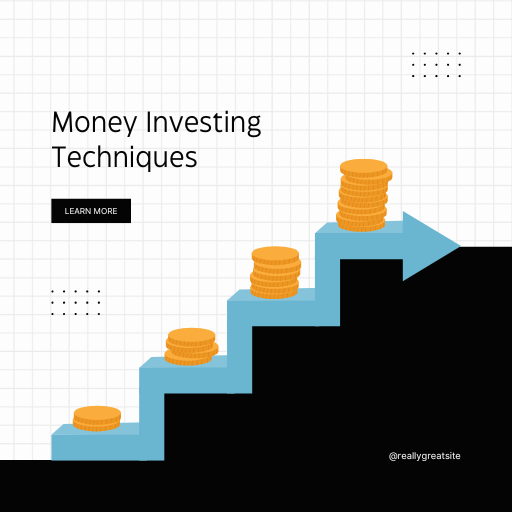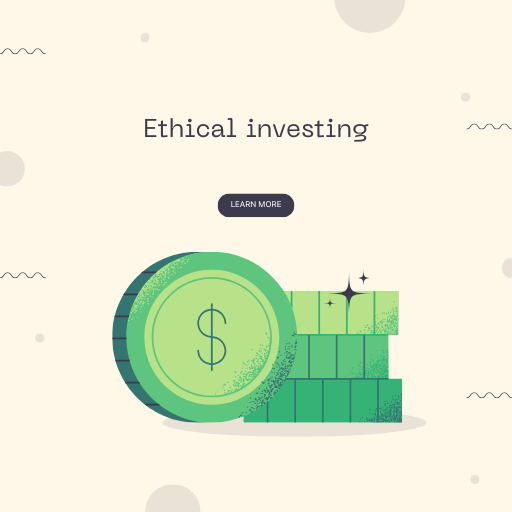Introduction to Ethical Investing
What Is Ethical Investing?
Ethical investing is more than just chasing profits—it’s about aligning your money with your morals. It’s the strategy of choosing investments based on both financial return and personal values. Think of it like voting with your dollars—every investment tells a story about what you stand for.
The Evolution of Ethical Investment Practices
Decades ago, ethical investing was mostly limited to religious institutions avoiding “sin stocks.” Today, it’s a mainstream movement driven by global concerns like climate change, diversity, and corporate responsibility. Ethical investing has matured, blending profit with purpose and reshaping capital markets in the process.
Key Principles of Ethical Investing

Environmental, Social, and Governance (ESG) Criteria
ESG is the cornerstone of ethical investing. These three pillars help measure a company’s impact on the world:
- Environmental: How does a company handle waste, emissions, or renewable energy?
- Social: What’s their record on employee treatment, diversity, or human rights?
- Governance: Is their leadership transparent and ethical?
Understanding ESG Metrics
You wouldn’t buy a car without a test drive, right? Similarly, investors use ESG metrics to “test drive” companies before investing. Metrics cover carbon footprint, workplace diversity stats, board independence, and more.
Common ESG Scoring Models
Firms like MSCI, Sustainalytics, and Bloomberg rate companies based on ESG criteria. Each uses slightly different models, but the goal is the same: to simplify ethical investing with a score you can trust.
Types of Ethical Investing Strategies

Socially Responsible Investing (SRI)
SRI is the “original” ethical investing method. It involves avoiding companies that go against your principles—like tobacco, gambling, or fossil fuels. Think of it as the exclusion diet of finance.
ESG Investing
Unlike SRI, ESG investing is inclusionary. It emphasizes finding companies that actively do good—not just avoiding the bad apples. It’s about rewarding responsible behavior.
Impact Investing
Want your money to change the world directly? Impact investing focuses on measurable results—like funding clean water projects or sustainable housing. It’s the activism of investing.
Faith-Based and Value-Based Investing
These approaches let you invest according to specific religious or ethical codes—whether it’s Islamic finance, Christian stewardship, or secular humanism.
Ethical vs. Traditional Investing
Performance Comparison
One of the biggest myths? That ethical investing means lower returns. In truth, ESG funds have often outperformed traditional ones—especially during downturns—because responsible companies are often better run and more resilient.
Risk Factors and Mitigation
Ethical investing may come with unique risks—like limited diversification or volatile policy shifts—but many see these as worth the trade-off. ESG data actually helps identify hidden risks that traditional analysis misses.
Cost Implications
Ethical funds sometimes have higher fees due to research costs, but competition is driving those fees down. Plus, the peace of mind? Priceless.
The Role of Technology in Ethical Investing
Robo-Advisors and AI in ESG
Modern investors don’t need to be experts. Robo-advisors like Betterment or Wealthsimple offer ESG portfolios that are tailored, balanced, and affordable.
Blockchain for Transparency
Blockchain isn’t just for crypto—it can ensure companies are truthful about their ESG claims. It offers a tamper-proof way to track sustainability efforts.
Market Trends and Statistics
Growth of ESG Funds
As of 2024, ESG assets are expected to surpass $40 trillion globally. That’s not a trend—it’s a tidal wave.
Investor Demographics
Millennials and Gen Z are leading the charge. These generations demand transparency, impact, and ethics from the brands they support and the portfolios they build.
Regional Trends (US, EU, Asia)
- US: Rapid adoption, but regulatory inconsistencies
- EU: Strong frameworks, especially after the Sustainable Finance Disclosure Regulation (SFDR)
- Asia: Emerging focus, particularly in China and Japan
Challenges in Ethical Investing
Greenwashing
Some companies pretend to be eco-friendly just to attract ESG dollars. That’s greenwashing, and it’s a serious issue. Always dig deeper than the marketing gloss.
Lack of Standardization
Different rating agencies, different scores—it can be confusing. This lack of uniformity is why regulations and better frameworks are critical.
Data Availability and Reliability
Smaller companies or those in developing markets may not have robust ESG disclosures. Investors need to be cautious and informed.
How to Start Ethical Investing
Setting Personal Investment Values
Ask yourself: What causes do I care about? Climate action? Gender equality? Animal rights? Your values will guide your investment journey.
Choosing the Right Ethical Fund
Look into mutual funds or ETFs with strong ESG ratings. Research their holdings, management approach, and historical performance.
Tools and Platforms for Ethical Investors
- Morningstar’s Sustainability Ratings
- ESG-focused robo-advisors
- Apps like Goodvest or OpenInvest
Ethical Investing and the Future
Corporate Accountability
As shareholders, ethical investors push companies to improve. They vote on policies, attend meetings, and hold CEOs accountable.
Regulation and Policy Shifts
Expect stricter rules around ESG reporting, especially in the EU and North America. Governments are realizing that ethical finance can’t operate on trust alone.
The Next Generation of Investors
Young investors are changing the game. For them, investing is activism. And as they inherit trillions in wealth, the ethical investing movement will only grow stronger.
Conclusion
Ethical investing isn’t just a trend—it’s a transformation. It’s reshaping finance into a force for good, letting you grow your wealth without compromising your values. Whether you’re saving for retirement or trying to make a difference, there’s never been a better time to align your money with your morals. Let your portfolio reflect your principles—because change doesn’t just happen. It’s invested in.
FAQs
What’s the difference between ESG and SRI?
ESG includes companies doing good; SRI excludes those doing harm. ESG is inclusive, SRI is exclusive.
Do ethical investments perform worse?
Not necessarily! Many ESG funds outperform traditional ones, especially during economic stress.
Is ethical investing only for the wealthy?
Not at all. Robo-advisors and ESG ETFs make it accessible for all income levels.
How do I know if a company is truly ethical?
Check independent ESG scores, official reports, and look out for greenwashing red flags.
Can ethical investing influence global change?
Absolutely. Investors have the power to shape markets—and the world—by where they place their dollars.